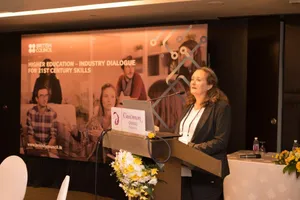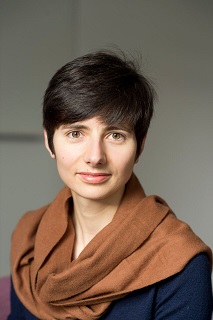IER News & blogs
New project: AHSS Sector analysis of the employment outcomes of graduates
 The British Academy has commissioned IER to undertake an analysis of the employment outcomes of graduates on undergraduate (UG) and taught post-graduate (PGT) courses in the Arts, Humanities and Social Sciences (AHSS) at UK Higher Education Institutions, looking at the sectors in which they are employed, the jobs they do, and the skills that they demonstrate. As part of this research, we are looking for volunteers to participate in two online focus groups. Participants will be offered a £10 incentive for attending the focus group. All participants must be AHSS graduates from UK universities who are currently in paid work.
The British Academy has commissioned IER to undertake an analysis of the employment outcomes of graduates on undergraduate (UG) and taught post-graduate (PGT) courses in the Arts, Humanities and Social Sciences (AHSS) at UK Higher Education Institutions, looking at the sectors in which they are employed, the jobs they do, and the skills that they demonstrate. As part of this research, we are looking for volunteers to participate in two online focus groups. Participants will be offered a £10 incentive for attending the focus group. All participants must be AHSS graduates from UK universities who are currently in paid work.
For more information or to register an interest in taking part, please contact C dot Lyonette at warwick dot ac dot uk
Credentials and self-reported skill gain do not measure the same
 As a part of the LEGACY project, Dr Heike Behle recently presented a paper in which two ways to measure learning gain were critically assessed: Credentials and self-assessed improvement of specific skills.
As a part of the LEGACY project, Dr Heike Behle recently presented a paper in which two ways to measure learning gain were critically assessed: Credentials and self-assessed improvement of specific skills.
Both ways have drawbacks: Credentials can be an effective way of measuring student learning within a particular class, since most institutions have a scaled grading system already in place. It is problematic, however, to use across classes and institutions and it does not measure the ‘distance travelled’ during higher education. On the other hand, self-assessed improvement of skills will always be subjective and will differ according to individuals’ personality and their personal and HE-related circumstances such as gender and subject studied. It is also important to notice that both data is censored, i.e. improvement is not unlimited.
Using Futuretrack data, Heike compared both ways and found that those who increased their learning gain using credentials are less likely to assess their skills highly, both variable correlate negatively. The findings are currently being prepared for publication. Reported in THES.
The role of higher education to produce employable graduates
 Dr Heike Behle on invitation of the British Council at the Higher Education - Industry Dialogue in Sri Lanka gave a presentation on the role of higher education to produce employable graduates. Heike also demonstrated different ways to measure the employability of graduates based on her work for the LEGACY project.
Dr Heike Behle on invitation of the British Council at the Higher Education - Industry Dialogue in Sri Lanka gave a presentation on the role of higher education to produce employable graduates. Heike also demonstrated different ways to measure the employability of graduates based on her work for the LEGACY project.
New report - Graduates in non-graduate occupations
A recent IER report prepared for HEFCE and SRHE IER's Dr Heike Behle compares the early pathways of graduates from two leaving cohorts: those who graduated in 1999 (‘class of 1999’) and those who graduated from three year courses in 2009 and from four year courses in 2010 ('class of 2009/2010'). It shows that the proportion of employed graduates working in non-graduate jobs during their first year after graduation has remained high with approximately 36 per cent of all employed graduates from three year courses and, respectively 30 per cent of all employed graduates from four year courses working in non-graduate jobs fifteen months after graduation.
Behle, H. (2016) Graduates in non-graduate occupations (Report prepared for HEFCE and SRHE). London: Higher Education Funding Council for England.
Expert seminar: What is a graduate job?
 The increase in the proportion of graduates working outside traditional areas of graduate employment, changes in technology and the labour market, and the shift in the definitions of skill towards encompassing interpersonal abilities, have redefined the concept of ‘graduate’ jobs. This seminar provides a unique opportunity for expert discussion of the developments in graduate job classifications and their contributions to understanding the recent changes in the graduate labour market. The seminar is being organised by Dr Daria Luchinskaya, who joined IER in September.
The increase in the proportion of graduates working outside traditional areas of graduate employment, changes in technology and the labour market, and the shift in the definitions of skill towards encompassing interpersonal abilities, have redefined the concept of ‘graduate’ jobs. This seminar provides a unique opportunity for expert discussion of the developments in graduate job classifications and their contributions to understanding the recent changes in the graduate labour market. The seminar is being organised by Dr Daria Luchinskaya, who joined IER in September.
More information and to register for the seminar on 9 November.
